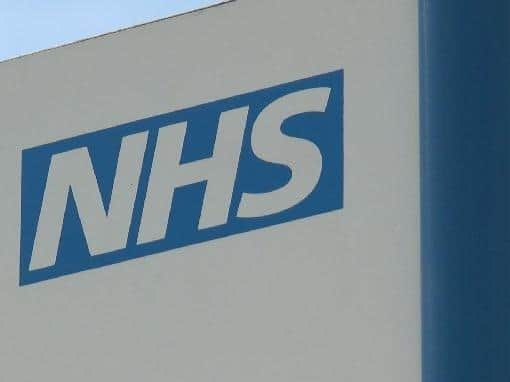Covid discharge rules risk causing "a squeeze" on Central Lancashire hospitals
and live on Freeview channel 276
The governing bodies of the Greater Preston and Chorley and South Ribble clinical commissioning groups (CCGs) were told that the region had successfully implemented a national directive issued in mid-April designed to prevent the spread of Covid-19 in the care sector.
The edict – the timing of which has been criticised In some quarters for not coming earlier in the pandemic – required all patients to be tested for the virus prior to discharge from hospital.
Advertisement
Hide AdAdvertisement
Hide AdUnder the NHS England rules, Covid-positive individuals could be returned to a care home – or sent to one for the first time – only if the facility had in place “effective isolation strategies or cohorting policies”. Otherwise, local authorities were obliged to arrange alternative accommodation for the remainder of the patient’s isolation period, with NHS assistance if necessary.


The Central Lancashire CCGs considered commissioning a dedicated facility for that purpose, but the Local Democracy Reporting Service understands that, ultimately, around a dozen beds were added to existing community care capacity instead.
“We tried to commission a unit for Covid-positive patients [needing] recovery beds until they had had their 14-day isolation and could be returned to their ordinary place of residence. But understandably – and with very valid reasons – [while] providers were overwhelmingly supportive of helping us, [they] were not overly keen on taking Covid-positive patients,” Jayne Mellor, the CCGs’ director of transformation and delivery, told the recent meeting.
She explained that the trust which runs the Royal Preston and Chorley and South Ribble hospitals was “starting to feel the squeeze” as a result of retaining Covid patients and the need for greater spacing between beds elsewhere.
Advertisement
Hide AdAdvertisement
Hide Ad“We have to be mindful that puts additional pressure on as they start to increase their [non-Covid] activity. We are managing successfully to avoid people being discharged back to the care sector that are Covid-positive, but we need to keep an eye on that, because staying in hospital is creating its own pressures,” added Ms. Mellor, speaking in late May.
However, hold-ups in discharging other patients who are medically fit to leave hospital – known as “delayed transfers of care” – has hit one of its lowest ever levels locally during the pandemic.
Meanwhile, governing body member Dr. Eamonn McKiernan noted recent research which showed that “false negative results of Covid tests are of the order of 30 percent”.
“So a negative swab is no assurance of Covid-freeness,” he warned.
Advertisement
Hide AdAdvertisement
Hide AdGreater Preston CCG chair, Dr. Sumantra Mukerji, said the process was one of “minimising risk as much as you can”.
Lancashire Teaching Hospitals NHS Foundation Trust was approached for comment.
In a statement on the issues raised at the CCG meeting, Lancashire County Council’s cabinet member for adult services, Graham Gooch, said:
“As part of the health and care system, it’s vital that we support as many people as we can to remain at home and to return home when they are discharged from hospital, when safe and appropriate to do so.
Advertisement
Hide AdAdvertisement
Hide Ad“There has been an increase in demand for people receiving care in their own home when discharged, so we are working with providers to increase this care capacity in our communities.
“Care homes have an important role and it’s crucial that robust systems are in place to test staff and residents to safeguard from Covid outbreaks.
“We have been proactive in working with care providers to ensure they have access to testing. This includes encouraging them to arrange testing through the Government’s schemes throughout the Covid-19 outbreak and training volunteers such as St John Ambulance who can attend a home to do the swabbing to alleviate pressure on busy care staff,” County Cllr Gooch added.
Along with all other local authorities in England, Lancashire County Council is currently drawing up a local outbreak control plan to manage any flare-ups in coronavirus, part of which will focus on care homes.